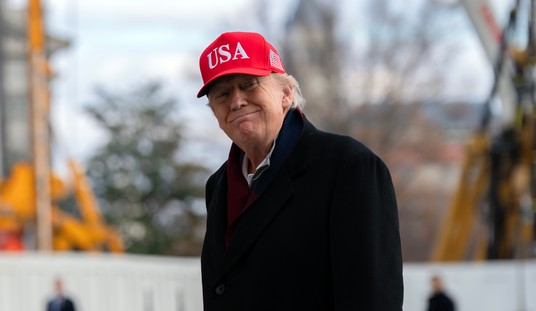All three presidential candidates agree on one policy change after the Bush administration makes its exit in 2009: close the detention center at Guantanamo Bay. However, all three have another common quality in the new policy, which is that they don’t explain how to do it. Bringing the terrorists to American territory may mean releasing them here, unless Congress wants to allow indeterminate detention without trial in the US:
A wave of change appears headed toward the U.S. detention center at Guantanamo Bay, Cuba, with all three major presidential candidates vowing to abolish the military prison.
And somewhat surprisingly, closing the camp and moving the prisoners to the United States may be the easy part, said U.S. officials, former administration aides and legal experts.
But nobody has yet found a way through the legal thicket in the way. Especially vexing are scores of foreign detainees: Officials lack evidence to prosecute, but warn against setting them free. …
Under current law regarding Guantanamo prisoners, those 135 have a limited right to ask a judge to examine the review board’s findings but no broad rights to challenge their detention in federal court.
Limits on rights are specific to Guantanamo, however, legal experts said. If they are moved to U.S. territory, they will be entitled to broader rights to challenge their detention, the experts said.
Because there is little evidence against them that could be used in a U.S. court, government officials fear that a federal judge could order them freed. “Then you would have 100-plus future sleeper-cell members unleashed in Kansas,” for instance, said the midlevel official, who also spoke on condition of anonymity. “That is what the government is trying to prevent.”
This has always been the hidden problem behind the rhetoric. Closing Gitmo takes no effort at all, but that’s only the beginning — and it reveals that the real issue has never been Guantanamo Bay at all. The real issue, one all three presidential candidates have avoided, is whether we release known terrorists and allow them the opportunity to attack us again.
In closing Gitmo, we have two choices. One would be to ship the detainees to another detention facility outside of the US, which would only be a geographical change. It would win us nothing in terms of international approval, and would likely be much less secure than Gitmo. The second choice would be to bring the detainees to the US and either use the civilian courts or get Congress to approve indeterminate detention without trial inside the US — essentially recognizing the danger the terrorists pose and treating them like we treat them now at Gitmo, using military tribunals instead of courts. Again, this would only be a change in location, and hardly a salutary one at that for Americans.
Moving detainees back to the US forces us back into the law-enforcement model again. It gives terrorists access to a civil justice system that has never been applied to America’s enemies at a time of war. It would force the courts to treat soldiers as policemen and terrorists captured in battles and in faraway lands the same as bank robbers — with Miranda rights that almost certainly did not get read to them at their capture. The information we have on them that identifies their dangerous nature would not be admissible in civilian courts, because at war we use methods that operate outside those restrictions — just as we have during our entire national history.
In other words, closing Gitmo has little point unless the purpose is to free the terrorists to strike us again. It’s unfortunate that the only consensus to be found among the remaining presidential candidates is that policy.








Join the conversation as a VIP Member